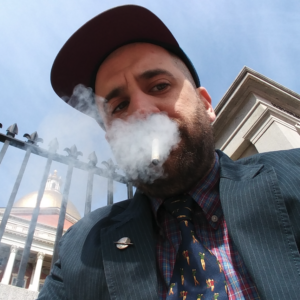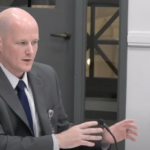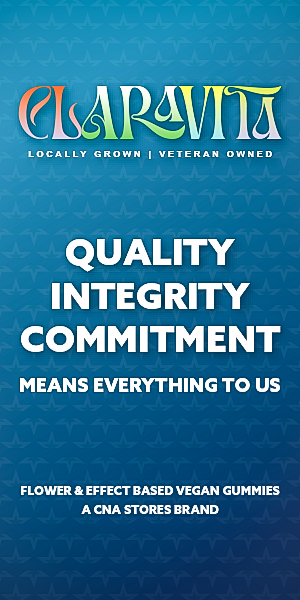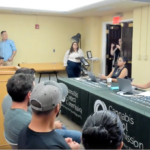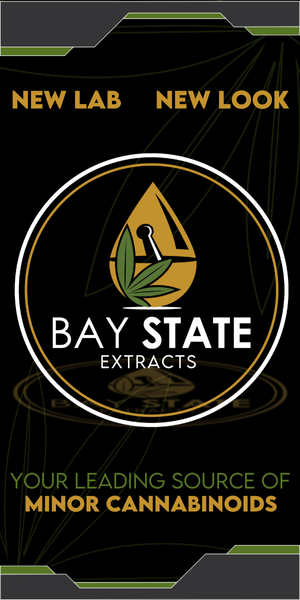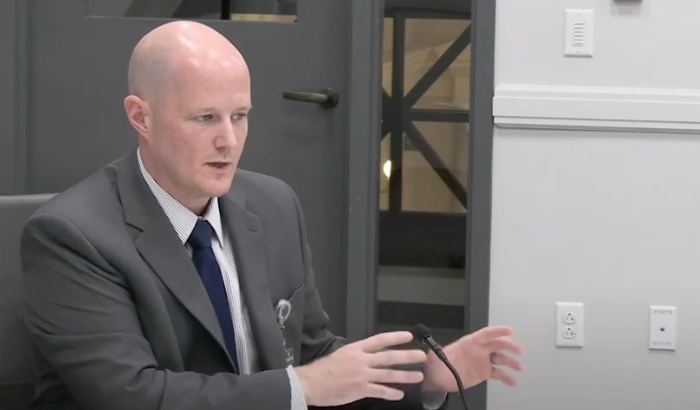
A timeline of the (lack of) progress toward licensing 420-friendly lounges and other social establishments in Massachusetts
While dangling the idea of boutique dab bars and flower-friendly lounges is setting out fly paper for stoned people Googling, we’re careful to avoid writing too frequently about social consumption in Massachusetts.
At this point, it’s basically unfair to readers since there’s little happening on that front. But with regulators scheduled to refocus on social consumption at a public meeting on Dec. 5, it seemed like a good time to help heads get back to thinking about this issue and what could come of the upcoming discussions. Here’s what led up to this point …
-Massachusetts started down the path of establishing social consumption regulations all the way back in 2018, when state lawmakers passed a cannabis reform bill that included a provision to allow municipalities to permit weed lounges within their borders in accordance with a particular set of rules.
-The initial framework for social consumption as it was imagined by lawmakers and advisors who had never been to such an establishment prohibited smoking indoors entirely, required cost-prohibitive ventilation systems, and limited edible sales to only room-temperature products, among other non-starters.
-A “pilot program licensing primary-use social consumption establishments (cannabis cafes) and event host licenses (events open to the public)” was conceived in 2019. That program put in place a strategy to initially open up “a maximum of twelve municipalities, each of which may implement its own cap on each type of license.” However, commissioners—as well as many Social Equity applicants, who the pilot was intended to uplift—came to feel the effort was misguided. In addition to unreasonable restrictions including a ban on indoor smoking, the group Equitable Opportunities Now (EON) said the pilot also created “significant and unnecessary uncertainty for potential license applicants and potential host communities.”
-Commissioners voted to scrap that pilot program in May 2023. In the following months, they held three public listening sessions on the topic across the state, and also sent out a survey targeting potential social consumption applicants. Keeping the momentum, last October, Commissioner Nurys Camargo spoke at a CCC meeting about how she and Commissioner Bruce Stebbins led a working group and fact-finding mission that included Camargo and three CCC staff members spending “three packed days in Oakland and San Francisco to better understand what social consumption looks like.”
-In January 2024, Camargo and Stebbins briefed the Massachusetts Cannabis Advisory Board (CAB), which advises the agency on various matters, about their working group’s progress to date. Among their boldest bullet points: prospective applicants and host municipalities should start spitballing plans and possibilities to the extent possible; public education is going to be very important; and this is sure to be extremely complicated, so people should be patient.
-In September, Stebbins and Camargo returned to the CAB with updates. The latter said in reintroducing the topic, “Since then, we’ve done a great degree of work, and you’ll see this as we begin to build out what the actual regulations will look like.” “I’m excited,” Camargo said, “to give the public more of the social consumption framework we’ve been working on for a while now.”
-Commissioners have already outlined some general themes of what to expect, spanning purview to their primary concerns including: “Social Consumption Establishment means an entity license to sell marijuana or marijuana products and allow consumers to consume marijuana or marijuana products solely on its premises”; “The license type is currently reserved for Economic Empowerment Participants, Social Equity Participants, Microbusiness, and Cooperative Growers”; Priorities will include a public awareness campaign “to message responsible consumption and policy changes,” social consumption responsible vendor training, and municipal advisory to “help communities to understand and adopt social consumption and share best practices”; “Communities will need to plan for zoning, local board of public health involvement, and adoption of referendum approach or bylaw/ordinates change.”
-Last we heard, Stebbins, who is now the acting CCC chair, said the agency is “reconnecting with appointing authorities [and] key government and stakeholder partners,” sending in a supplemental budget request for an extra half-a-million dollars to fund a public awareness campaign, and outlining a “final draft framework with CCC internal teams.”
-In the meantime, plenty of promoters and private establishments have done critical groundwork, throwing industry events and parties that present different circumstances where cannabis can be safely incorporated. As Stebbins acknowledged in his September presentation, unlicensed social consumption is already happening in Massachusetts, and “the only real big difference is that people are bringing their own cannabis products to consume, and are not purchasing them on site, which fits with our regulatory definition.”
-And now, after all that, it looks like the CCC is finally ready to get moving. According to the agency, “On Dec. 5, Commissioners are slated to hold a public meeting to open the agency’s regulations for its review of the existing Social Consumption Establishment license types and framework.” In closing out the agency’s last round of torturous regulatory rewrites, Stebbins said, “The Commission acted diligently to update regulations for constituents while maintaining a safe, equitable cannabis market. …
“These changes will allow Microbusinesses to expand into new parts of the industry and access social consumption licenses in the future. The Commission is looking forward to the rollout of the social consumption framework in December, the next major step forward for the industry.”



